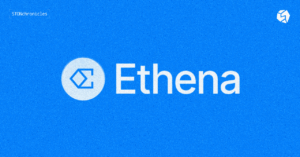Blockchain technology was initially developed as an alternative for the traditional financial industry. Considering the many limitations of such gateways as VISA, MasterCard, and traditional banks, Bitcoin – the original cryptocurrency – leveraged blockchain as a means of accelerating transactions and eliminating intermediaries from the chain of operations. By making payments faster, more transparent, and more affordable, blockchain was conceived as an ideal alternative to international gateways and the financial infrastructure as a whole to facilitate cross-border monetary transactions.
As time passed and the blockchain and cryptocurrency hype swelled, the original uses of the technology were temporary concealed behind the speculation-focused application. With trading running rampant and blockchain being positioned solely as a basis for the profit-driving cryptocurrency domain, most users seemed to have accepted the original virtues of the technology as a given. However, international banks and financial institutions were keen on adopting and using the blockchain for their own benefit, thus turning the initially disruptive technology to their cause.
Potential Benefits of Blockchain for Finance
Finance is and still remains the main sector of application for blockchain as banks and many other financial sector players are turning to it in an effort to add both efficiency to their operations and reduce associated costs.
Trade Finance
Trade finance is a major part of the international monetary relations framework. However, the conventional form of trade finance is extremely complicated and burdened by an immense amount of paperwork, which raises the possibility of both fraud and error. The centralized basis of the trade finance framework further adds the element of outright corruption into the mix, making the entire process ineffective, opaque, and unreliable.
The use of blockchain can significantly improve the trade finance sector and add much-needed transparency, thus improving relations between trade partners and opening up entirely new opportunities for non-institutional players willing to enter the market.
Asset Management
The smart contract basis of the blockchain turns all user relations into executable “if – then” scenarios. Smart contracts can be programmed to respond to specific conditions, thus automating a plethora of processes in the financial and asset management domains. The potential for tokenization further enhances the workflow by allowing real-world assets to be converted into their digitized versions for instant sale. Such an approach can vastly improve liquidity flows and expand investment opportunities for players with low capital by reducing entry thresholds.
Insurance
The insurance industry is one of the most cumbersome and expensive in the world. Blockchain can vastly streamline it by negating the possibility of fraud and adding transparency through public storage of vast amounts of data that can be retrieved on-demand. The introduction of more advanced modules, such as AI, into the blockchain can add an entirely new level of data management, improving risk assessment through in-depth analysis of client details and predictive analytics.
Compliance
The many regulations that exist in the financial industry slow down virtually all processes taking place in it. With regulatory compliance becoming increasingly difficult to manage and adhere to as rules and laws swell in number, the blockchain can provide a secure and completely transparent basis that would make non-compliance virtually impossible through the use of smart contracts. The immutable decentralized ledger makes it possible to streamline all manner of compliance processes, such as Know Your Customer and Anti-Money Laundering.
Inclusion
There are over a billion unbanked or underbanked individuals around the world. The accessible and low-entry threshold nature of blockchain would make it possible for such individuals to gain access to financial services and markets without the need to pass through complicated bank procedures. With a blockchain wallet being the only prerequisite for engaging in blockchain-based market operations, financial inclusion and accessibility through internet coverage would contribute to economic growth and grant millions of people access to loans. The DeFi sector is just one of the examples of a venue that would foster such an inclusive approach.
Proven Benefits
Though many of the advantages that blockchain offers are still being tested and slowly adopted at the level of select banks and a vast array of blockchain projects, there are proven benefits that have already been applied on a global scale. Among them are the following:
- Lower transaction processing costs;
- Reduced risk of human error;
- Reduced manual data entry needs;
- Transaction processing automation;
- Increased transparency of operations;
- Immutability of records;
- Increased security of transactions.
The use of blockchain in finance is currently largely restricted to its application as a data storage medium for processing information. The real-time nature of blockchain makes it possible to track and identify transactions of interest, making audits simple. Such efficiency makes it easy for banks and financial entities to have real-time awareness about liquidity, risks and other factors.
The blockchain is also currently being used for intrabank transactions, effectively redistributing available liquidity among branches, thus negating the need for immediate physical deliveries of cash supplies. By having funds redistributed on the blockchain, any bank branch can have access to the organization’s resources instantly without incurring unnecessary losses.
A last, but very important option, is the use of blockchain as an overseer for ATM networks. The blockchain is used for monitoring the status of ATMs and the level of cash they contain. The decentralized system handles the netting of interbank operations and removes the need for much of the manual processes involved in servicing ATMs. This reduces the cost of logistics used in cash transportation.
Conclusion
The ongoing adoption of blockchain, albeit slow, is transforming the landscape of the financial industry, revolutionizing the manner in which cash is handled and how transactions are processed. The streamlining of payments is of great benefit for both institutions and individuals, promising many opportunities of improving efficiency and opening up new gateways for market entry.





